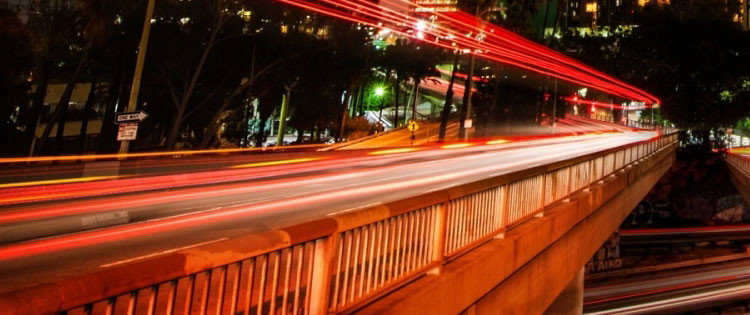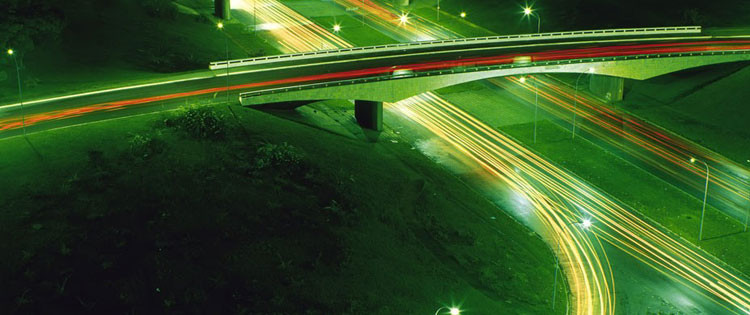By Terri Hall
Founder/Director
Texans for Toll-free Highways & Texans Uniting for Reform and Freedom (Texas TURF)
June 6, 2023
While the 88th regular session of the Texas Legislature has come to a close, what did the taxpayers get out of it when it comes to transportation and toll reforms? In short, not much. Let’s break it down.
It’s easier to say what didn’t pass first since none of our filed bills even got a hearing, except one, much less voted out of committee. No bill to stop remote kill switches going into all cars after 2026 (currently mandated by the Biden Infrastructure bill), no bill to stop road diets, no bill to protect drivers’ right to repair, no bill to take tolls down once the road debt is paid for, and no toll collections/billing reform, with the exception of immediately notifying drivers when there’s a problem with your payment card (HB 2170). Get the scoop on all this essential legislation here.
HB 2170 by Bobby Guerra (D-McAllen) was a huge missed opportunity. The grassroots jumped in to ask him to sign onto our broader toll billing reform bill, HB 2991 by Brian Harrison (R-Midlothian), as soon as his bill got filed, but he never did. Then when his bill was heard in committee, we asked if he’d consider substituting our language for his since his bill’s language was already in our bill, and he wouldn’t. Then when his bill came to the House floor for a vote, knowing it was too late to have our bill make it to the floor, he once again refused any amendments to his bill, including a pared-down version just capping the toll fines/fees and removing the criminal penalty. He refused to budge.
Then when it passed the House and went over to the Senate, we once again asked him and the senate sponsor, Senator Carol Alvarado (D-Houston), to amend it to at least give drivers relief from punitive fines and remove the criminal penalty — still no deal despite calls and pleas from ordinary Texans. Not one Republican would bring any of these amendments to the floor for a vote in either chamber. So the toll agencies have more power and sway than the millions of Texas drivers who get put into collections over unpaid tolls. Why do so many of those bills go unpaid? Because of the outrageous fines and fees tacked onto them, making them out of reach for most drivers.
One glimmer of hope came from a bill by Senator Brian Birdwell, SB 1017, to protect our right to own and use a vehicle or any other machine with a fossil fuel powered engine. Basically, it will keep cities and counties from banning gas powered engines.
Two significant wins for taxpayers were the defeat of two of House Transportation Committee Chair Terry Canales’ (D-Edinburg) bills — the mileage tax, HB 3418, and the bill to extend the 50-year private toll contract on SH 130 another 20 years, HB 2795, in order for the state to get a ‘free’ connector to SH 130 from SH 46 in New Braunfels. Both of these bills passed the House but failed in the Senate, thanks to tremendous grassroots opposition and clearer heads in the more conservative chamber. To understand the implications of why HB 2795 is a BAD deal for taxpayers, go here.
HB 3418 by Canales would have studied how to impose a state mileage tax. A tax on every mile you drive is really a toll for every mile you drive. This would be disaster for Texas taxpayers! The original filed bill required TxDOT to “vary pricing based on the time of driving, type of public highway, proximity to transit, vehicle fuel efficiency, participation in car-sharing or pooling, or the income of the operator.”
That’s straight out of the Biden administration’s socialist, anti-car playbook. In a Government Accountability Office report on the expanded use of a mileage tax published just after the infrastructure bill passed, it explains it perfectly, “Another type of equity is the ability-to-pay principle, where users who are more capable of bearing the burden of fees should pay more for the service than those with less ability to pay.”
The version that passed the House removed income (for now). However, it still required TxDOT to “evaluate the enforceability of the vehicle mileage user fee and opportunities for operators to evade or manipulate the fee; and the impact of the vehicle mileage user fee on equity.”
It also required TxDOT to “submit to the legislature a report including: the feasibility of permanently assessing a vehicle mileage user fee; an evaluation of the impacts of a vehicle mileage user fee on the economy, the environment, and traffic congestion; and the department’s recommendations together with suggested legislation necessary to implement the recommendations.”
Plank #63 in the 2022 GOP platform opposes a mileage tax, but that didn’t make a difference to the Democrat Committee Chair nor the majority of House Republicans. Ultimately, a mileage tax is a form of carbon tax, because the government would be able to track and penalize drivers for driving ‘too much,’ at the ‘wrong’ time of day, or for actions they deem environmentally unacceptable, like choosing to drive when you live close to transit. While it received a hearing in the Senate Transportation Committee, it lacked the votes to get out of committee, so it died in the Senate.
But there was plenty of ‘woke’ road policy and climate extremism, as well as bills to benefit special interests, especially the EV industry. Thankfully, very little passed the Senate, too, but not without a fight.
The House passed bills out of the Green New Deal playbook that includes intentional slowing of cars and other ‘traffic-calming’ measures designed to restrict the free flow of auto lanes. Get the backstory with all the bill numbers here. Climate equity plans adopted by most Texas cities also include increasing penalties on speeding and other aspects of driving (for example, prohibiting cars from passing pedestrians and cyclists without a specific distance as a buffer, or anything to put barriers in the way of free-flowing traffic).
Houston’s Climate Action Plan calls for slower speeds and other anti-car measures, with the express intent of getting people out of their cars and into buses or on bikes. Often dubbed Vision Zero, these policies deliberately slow cars to force drivers out of them, under the guise of ‘safety’ to attain the impossible goal of zero fatalities on Texas roads.
Austin’s Climate Action Plan declares, “we created the plan through the lens of racial equity,” confirming climate plans are a vehicle to impose social justice policies as well. They envision a car-free society.
HB 2224 authored by Rep. Ana Hernandez (D–Houston) would give cities unilateral power to lower speed limits on highways down to 20 m.p.h., without a traffic or engineering investigation to justify it. It was one of the first bills backed by environmental groups to pass out of committee, and it passed the full House.
The Senate had already passed the identical version, SB 1663 by Alvarado. But neither bill ended up moving through both chambers until the last two weeks of session when the House Transportation Committee decided to quickly move to pass the senate bill, SB 1663, and got it on the last House calendar on the last day to pass senate bills in the House. Because of delay tactics by Democrats to stop many bills they didn’t like using ‘chubbing’ to run out the clock, SB 1663 died. But it came VERY close to becoming law, effectively turning our highways into school zones. Permanently.
Canales did pass HB 1885, which allows TxDOT to ‘temporarily’ reduce the speed limit 10 m.p.h. below the posted speed for virtually any purpose, and it fails to define ‘temporary’—so, it could last indefinitely. Ever experience inactive work zones for months and even years with lower posted speeds? Imagine that spread like a virus.
Another bill, HB 898, authored by Republican Lynn Stucky of Denton, also passed, which will mandate new criminal penalties and more than double the fine (to a minimum $500 up to $1,250) for drivers who fail to move over when passing police, fire, tow trucks, TxDOT and other road workers on the shoulder. On a second offense resulting in bodily harm, a conviction will land you in jail with a felony and your license suspended for six months. There’s no room for discretion, it’s mandatory sentencing. It won’t matter if the situation was unavoidable when a driver may have been facing other perilous hazards if they slow down too quickly (like causing a pile-up behind them or crash into other vehicles if the driver forces his/her way into the other lane in crowded conditions). HB 898 passed the House 139-9 and passed the Senate 27-4.
One small bright light was passage of HB 4797 by Ramon Romero, Jr. (D-Ft.Worth) to bring some degree of accountability for the deaths of 6 Texas drivers. During ice storm Yuri in 2021, Interstate-35 W in Ft. Worth did not get properly treated to prevent ice build up by the private toll operator, Cintra, causing a 133 car pile-up that left 6 drivers dead. Romero’s bill would require all toll agencies, including private entities, to undergo training by TxDOT on how to properly weatherize roads.
Passage of HB 3297 by Cody Harris (R-Palestine) was another win for taxpayers with the repeal of the vehicle inspection for many vehicle owners. An inspection is still required per federal law in non-attainment areas thanks to the EPA, however, for everyone else, there is no longer a requirement to get your vehicle inspected. Ironically, since the Texas Constitution requires you to pay a $7 vehicle inspection fee to the state, you’ll still pay the fee, but just save the $7 you’d normally pay the vehicle inspection station and save the hassle of getting the inspection. Small victories.
Two key transportation funding bills passed, which shores up a sustainable highway funding stream and prevents the need for more toll roads. HB 2230 by Canales ensures revenue from oil and gas severance taxes (as approved by 80 percent of voters statewide in 2014) will continue. It extends Prop 1 funding from 2034 out to 2042.
SCR 2 by Senator Robert Nichols likewise ensures that annual revenue from Prop 7 sales tax and vehicle sales tax provisions (approved by 83 percent of voters in 2015) will remain in place. It extends Prop 7 until 2039 (vehicle sales tax) and 2042 (sales tax).
Another bill by Nichols finally made it across the finish line to charge Electric Vehicles (EVs) a vehicle registration fee. SB 505 imposes a $200 (renewal) or $400 (new) registration fee on EVs. Since EV users do not pay gasoline tax, EVs have been using Texas roads without paying for that road usage. This will require EVs to contribute to the State Highway Fund to ensure there continues to be sufficient funding for our state roads.
However, the EV industry got two prizes with passage of HB 3014 by Caroline Harris (R-Round Rock), to repeal the vehicle inspection for EVs, and SB 1364 by Alvarado (D-Houston) that grants a weight exemption to EV trucks allowing heavier loads (up to 82,000 pounds compared to their fossil fuel powered counterparts who are limited to 80,000 pounds) on our highways. This enshrines in statute the ability of EV trucks to do more damage to Texas highways without having to pay an additional overweight truck permit fee. Currently the max weight is 80,000 pounds for all other trucks. That’s not likely to be the last giveaway to the EV industry. Some might be asking, ‘But this is Texas! Why are we giving away green subsidies like the blue states do?’ Good question. I don’t have an answer for you, except cronyism and big campaign donations from the special interests who benefit from these corporate handouts.
WIth the first special session underway and more coming, who knows what the other sessions could produce. But rest assured, all eyes are on the Texas legislature, and we’ll stand guard to ensure our travel liberties are not infringed. While no genuine reform bills passed as a deliberate choice of leadership (Governor, Lt Governor, and Speaker and their committee chairs), we’ll turn our focus on preparing for the next regular session and building the grassroots army necessary to get them across the finish line. Texas drivers deserve far better than they’re getting, and it’s incumbent upon all of us to demand it. Hold them accountable at the ballot box. We need more courageous lawmakers to stand up and fight for our freedoms, not play footsie with leadership, be paralyzed with timidity, or go along to get along.



 Retiring Texas State Representative Joseph Pickett (D – HD 79) is one in a million. Truly there is no one in the Texas House who undertook transportation as a matter of personal study with the aim of improving every step of the process for both the government agencies in charge of delivering projects and also for the forgotten taxpayer like Joe Pickett. He announced his retirement right before Christmas citing his battle with cancer and the need to fully recover without the rigors of a legislative session. It’s truly a devastating loss for the people of Texas. Here’s why.
Retiring Texas State Representative Joseph Pickett (D – HD 79) is one in a million. Truly there is no one in the Texas House who undertook transportation as a matter of personal study with the aim of improving every step of the process for both the government agencies in charge of delivering projects and also for the forgotten taxpayer like Joe Pickett. He announced his retirement right before Christmas citing his battle with cancer and the need to fully recover without the rigors of a legislative session. It’s truly a devastating loss for the people of Texas. Here’s why.

